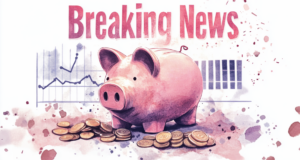FlowBank Faces Collapse

The Swiss financial regulator (FINMA) has shut down FlowBank, a bank that offered cryptocurrency trading, due to insufficient capital to conduct financial activities. Officials believe the company failed to meet even the minimum legal requirements for banking institutions.
On this page
The Swiss financial regulator (FINMA) has shut down FlowBank, a bank that offered cryptocurrency trading, due to insufficient capital to conduct financial activities. Officials believe the company failed to meet even the minimum legal requirements for banking institutions.
Moreover, the regulator rejected the possibility of restructuring due to high debt levels and appointed the law firm Walder Wyss as the liquidator. All depositors are guaranteed up to 100,000 Swiss francs within seven days, with the remaining assets to be distributed according to bankruptcy procedures.
The fate of the cryptocurrencies stored in accounts is still unknown. The liquidator will decide if digital assets in this context should be considered securities, thus placing such clients in the creditors' queue, or if they should be treated as direct claims against the bank. FlowBank has halted all operations and shut down its communication channels, including its hotline and social media.
FlowBank was established in 2020 and quickly attracted the European crypto asset manager CoinShares, selling it 9% of all shares and starting to offer direct cryptocurrency trading in standard accounts. Earlier, the crypto exchange Binance had recommended FlowBank to its large traders for fund storage.
The content on The Coinomist is for informational purposes only and should not be interpreted as financial advice. While we strive to provide accurate and up-to-date information, we do not guarantee the accuracy, completeness, or reliability of any content. Neither we accept liability for any errors or omissions in the information provided or for any financial losses incurred as a result of relying on this information. Actions based on this content are at your own risk. Always do your own research and consult a professional. See our Terms, Privacy Policy, and Disclaimers for more details.


























